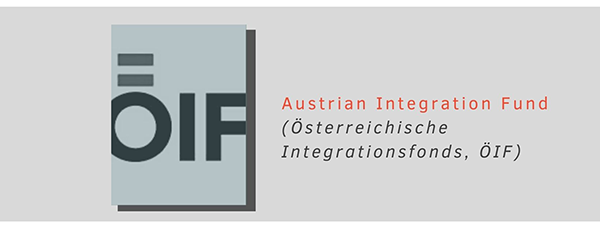22.01.2021. Austrian Integration Fund (Österreichische Integrationsfonds – ÖIF), as a key Austrian state body in the field of refugee integration, was established in 1960 in a cooperation with the UNHCR and the Austrian Ministry of the Interior. Since January 2020, it has been part of the Ministry of Integration.
Over 450 workers are involved in the work of this fund and it helps the integration of refugees into Austrian society. The percentage of foreigners and refugees in Austria are mostly: Germans, followed by BiH citizens with 70,000, then Turkey, and Serbians with 45,000 people, Syria and Afghanistan, which are starting to come to Austria, mostly since 2014 and 2016. Most foreigners live in the capital, Vienna.
The integration fund in each capital of the province has one center (9 centers) and plus 30 mobile centers, in the form of mobile offices, which cover rural areas, in order to inform refugees about their obligations and rights. The Law on Integration in paragraph 5 defines the obligatory measures of refugees, while the Asylum Law proclaims the obligatory attendance of the German language. The work of the integration fund is actually based on these two laws.
Three pillars are key in the integration funds work: the first is orientation and counseling in languages that refugees understand, and the second pillar is learning and attending German language classes. The last, third pillar consists of: the presence of the fund in the media, scientific papers and publications issued by the fund. The key annual issues behind the fund are: the annual report on integration and the integration barometer with plans and recommendations for the next period.
Integration courses are core in the work of the fund and the integration process, they have existed since 2015 and last for 8 hours. They consist of 8 topics: history, geography, law, tradition, culture, health care, German education system etc.
From January 2021, the integration course will be extended to 24 hours, and will last three days instead of one day. Topics of anti-Semitism, prevention of violence, racism, xenophobia and voluntary work will be key during the future work of the fund.
In addition to mandatory courses, the fund also offers users courses on a voluntary basis: for minors and teenagers, how to dispose of money, taxes in Austria, safe use of the Internet, contractual liability, special programs for parental support, courses for women.
The fund is also known for a specially created mentoring program for highly qualified refugees. The program has existed since 2008 in cooperation with the Chamber of Commerce and the National Employment Service. A mentor is made available to the beneficiaries in order to follow them for 6 months and help them integrate into the labor market.
An important part of the fund’s work is the media presence and local work of 400 goodwill ambassadors of the Austrian Integration Fund, successful people with a refugee background, actors, athletes, giving motivational speeches across schools in schools on multiculturalism and the role of refugees in creating a better and more colorful Austrian society.
